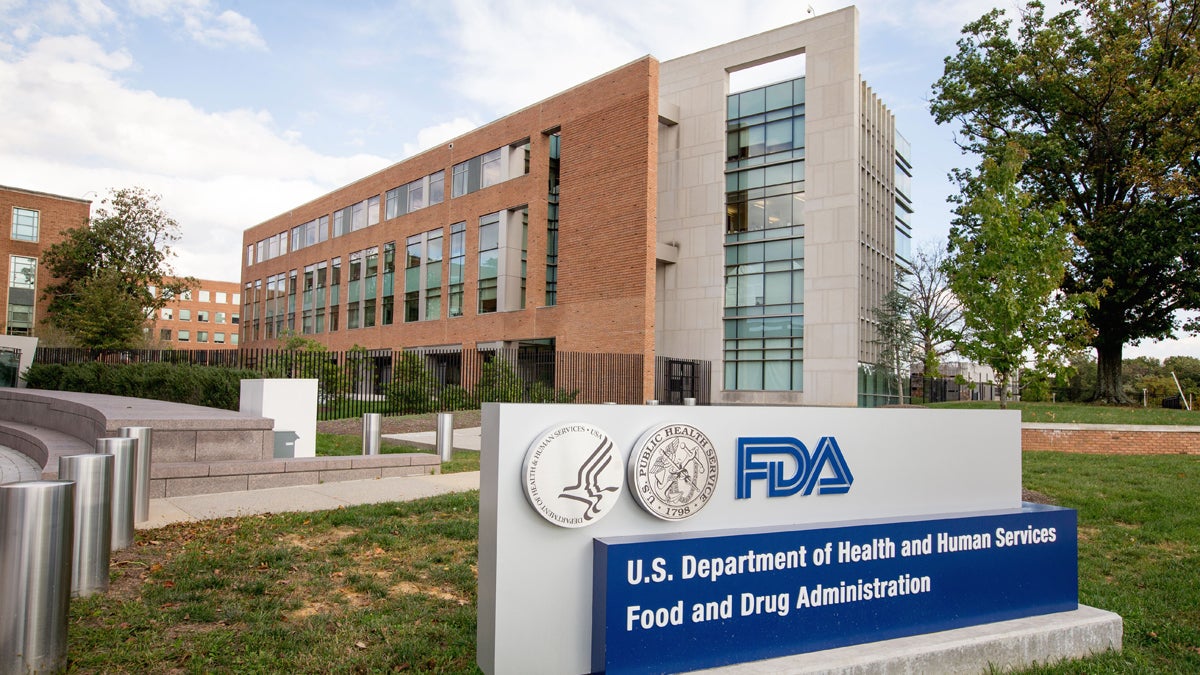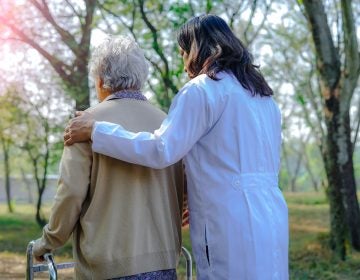Bioethicists push back on Trump call for national ‘right-to-try’ legislation
If a national version of this bill is approved, terminally ill patients could try experimental treatments that have completed some testing but don’t yet have FDA approval.

President Donald Trump is calling for a national "right-to-try" law allowing terminally ill patients to access treatments that have not been approved by the Food and Drug Administration. Many medical ethicists oppose the idea that has been embraced by dozens of states, including Pennsylvania. (AP file photo)
In Tuesday night’s State of the Union address, President Donald Trump encouraged Congress to pass a “right-to-try” law.
If a national version of this bill were approved, terminally ill patients could try experimental treatments that have completed some testing but don’t yet have approval from the Food and Drug Administration.
Some states, including Pennsylvania, already have such laws on the books, several medical professionals question the ethics allowing access to treatments that could be dangerous or inspire false hope.
Thanks largely to the efforts of Pennsylvania state Rep. Bob Godshall, R-Montgomery, state lawmakers unanimously passed a “right-to-try” law last year.
An experimental treatment saved Godshall’s life years ago when he was diagnosed with multiple myeloma bone marrow cancer — and he said more Americans deserve a chance to try out these treatments.
“If there’s something out there that may give me a shot at life, you know, I sure want to take it … and that’s what I did,” he said.
If he had waited for the FDA to approve his treatment, Godshall said, it could have taken years — time that he didn’t have.
But Holly Fernandez Lynch, a bioethicist and professor at the University of Pennsylvania, said not a single one of her colleagues supports the “right-to-try” legislation because it means sidestepping the FDA.
“You know, we’ve tried a world in which we didn’t have FDA oversight,” she said. “And we, as a society, decided that it was bad, that the risks of unregulated drugs were too high, and that people don’t have adequate information or knowledge on their own.”
Under the FDA’s expanded-access program, terminally ill patients can apply to take part in experimental treatments. The current application process is not burdensome, she said, and the FDA often agrees.
Laura Vearrier, who teaches at Drexel University College of Medicine, said she has serious concerns about “right-to-try” legislation. At a time when patients could be moving toward acceptance that their lives are nearing an end, she said, the law could encourage a heavy dose of false hope.
“Some patients are at the end of life, and they could maybe be focusing on spending time with family or other things that are important to them,” Vearrier said.
She and Fernandez Lynch are also concerned that the unregulated experimental treatments could have serious side effects that would make someone with a poor quality of life even sicker.
“There are a number of potential harms to patients that we need to be aware of,” Vearrier said. “Drugs that have passed phase one [of FDA testing] have not been proven to be safe.”
“You surely can make a terminal patient worse off by making them die more quickly, or more painfully, or lose quality of life,” added Fernandez Lynch.
Godshall said he considers it an issue of personal choice, and he chose to take the risk. That line of reasoning runs counter to the FDA’s entire reason for being, said Fernandez Lynch.
While Pennsylvania has had a “right-to-try” law since October, Delaware and New Jersey do not.
WHYY is your source for fact-based, in-depth journalism and information. As a nonprofit organization, we rely on financial support from readers like you. Please give today.




